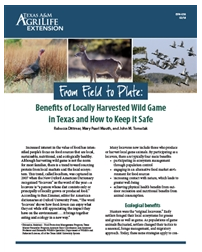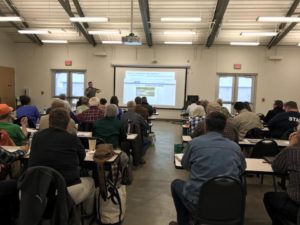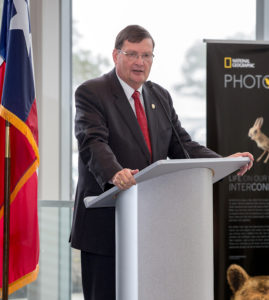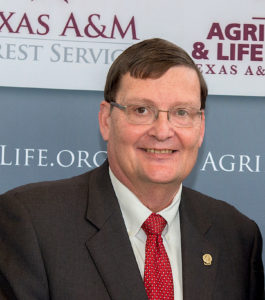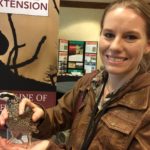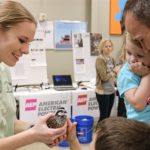Conference topics include tax valuations, fencing laws, hunting leases, among others
Writer: Kay Ledbetter, 806-677-5608, skledbetter@ag.tamu.edu
Contact: Dr. Larry Redmon, 979-845-4826, l-redmon@tamu.edu
KERRVILLE – Landowners may understand stocking rates and managing grass, but what about the latest on fence laws, wildlife tax valuations and hunting leases?
The fifth annual Hill Country Land Stewardship Conference hosted by the Texas A&M AgriLife Extension Service April 26-27 in Kerrville offers a chance for landowners in the region to learn more about these and more topics, said Dr. Larry Redmon, AgriLife Extension program leader, College Station.
“Tools for the Trade” is the theme of the annual event featuring speakers on everything from grazing to prescribed fire and herbicide control to legal issues,” said Redmon, who is also associate department head in the Texas A&M University department of soil and crop sciences in College Station.
The conference will open with on-site registration, check-in and breakfast at 7:30 a.m. April 26 at the Y.O. Ranch Hotel, 2033 Sidney Baker St. The program will begin at 8:30 a.m.
The conference fee is $75 and includes all meals, break refreshments and tour transportation costs. Registration will be available through April 20 at https://agriliferegister.tamu.edu/BennettTrust or 979-845-2604.
Redmon said several speakers will offer insight on some of the less-thought-of aspects of ranching or land ownership.
“Hunting Leases: Hunting for Success” will be discussed by Dr. John Tomecek, AgriLife Extension wildlife specialist, Thrall. He will also speak to the “Ag or Wildlife Tax Valuation: What Your Choice Ultimately Means” issue.
Another guest speaker will be Jim Bradbury, Austin attorney, who will present “Fence Laws: How to Not Get Your Britches Ripped.”
Other topics and speakers include:
— Grazing Livestock: Cattle, Goats, Sheep and Wildlife, Dr. Robert Lyons, AgriLife Extension range specialist, Uvalde.
— Prescribed Fire: Rejuvenate and Prevent Wildfire, Dr. Morgan Russell, AgriLife Extension range specialist, San Angelo.
— Herbicide Control Options: Is it Necessary?, Dr. Megan Clayton, AgriLife Extension range specialist, Corpus Christi.
— Setting Some Goals: Knowing When To Do Nothing, Clayton.
— U.S. Department of Agriculture Farm Service Agency – Resources/Programs, Ricky Neffendorf, Farm Service Agency county executive director, Fredericksburg.
— Wildlife Signs and ID’s, Annaliese Scoggin, Texas Parks and Wildlife Department biologist, Abilene.
— Rural Living: How Population Increases in the Edwards Plateau Will Affect You, Dr. Rebekka Dudensing, AgriLife Extension economist, College Station.
The second day of the conference will be dedicated to tours. Attendees will pick from tours of the Hillingdon Ranch in Kendall County, “Wine and Roses” in Kerr and Gillespie counties, or the Kerr Wildlife Management Area in Kerr County.
For more information, contact Linda Francis at L-francis@tamu.edu or an AgriLife Extension agent in the region, or go to http://agrilife.org/bennetttrust/.
-30-
